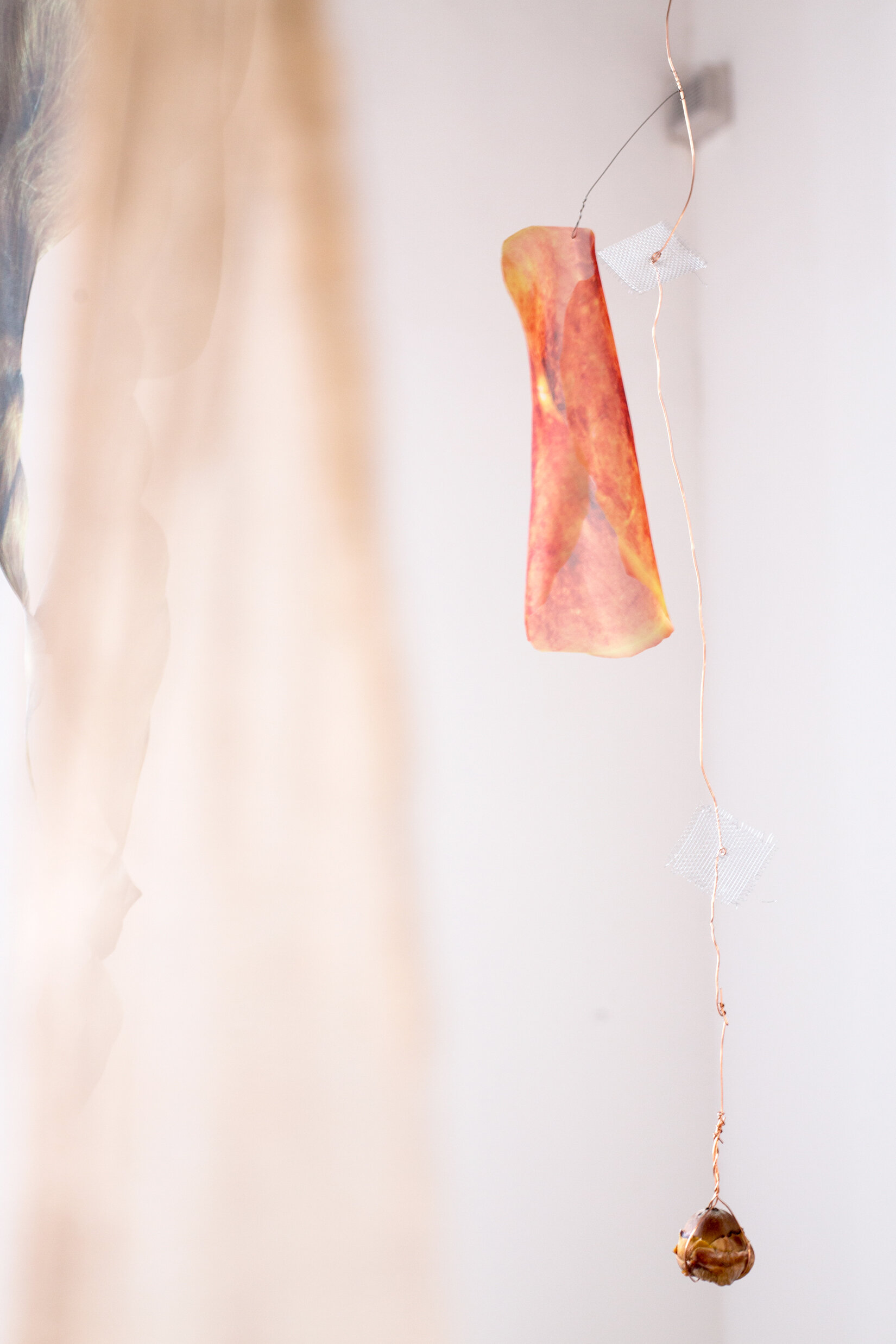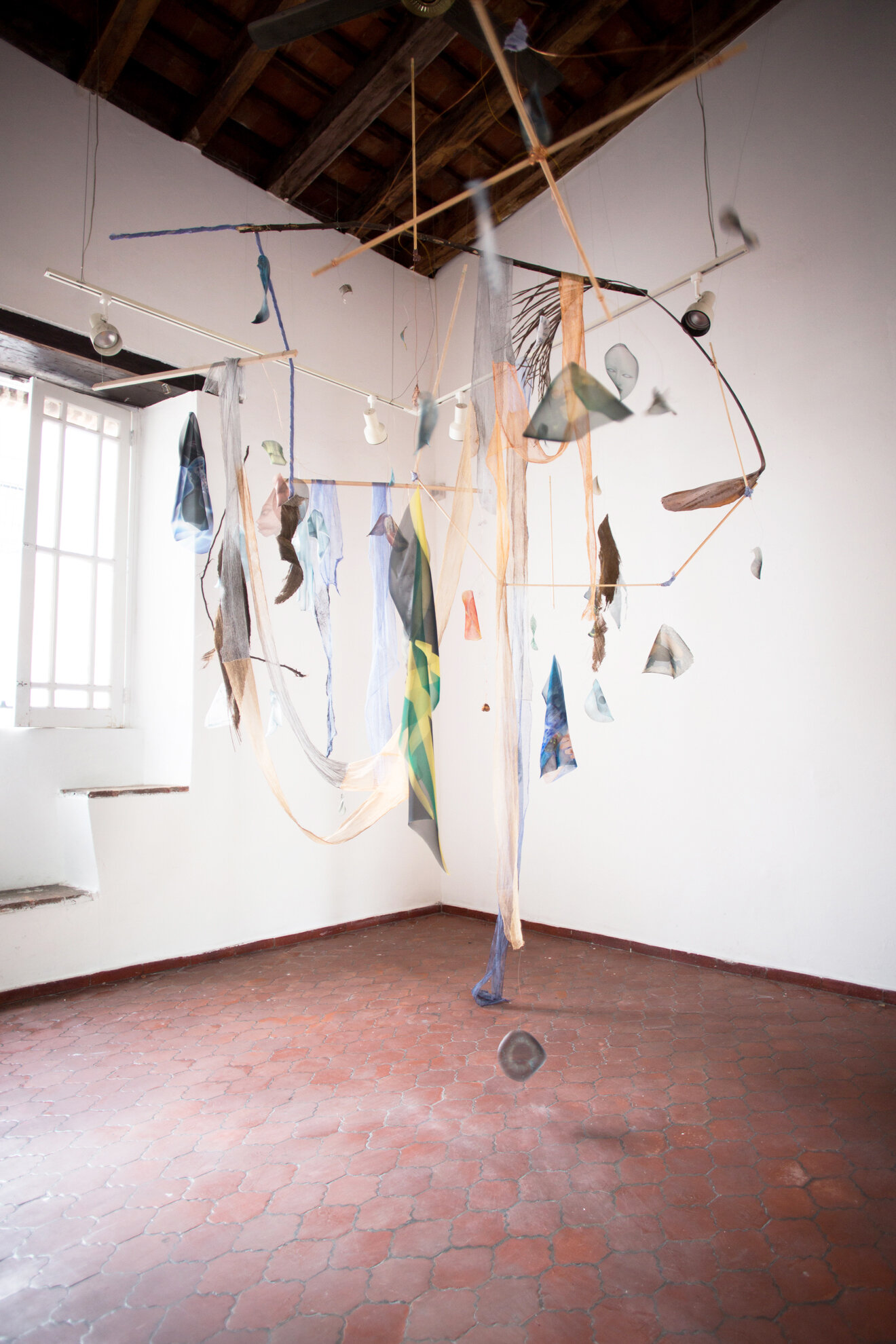Ritmohéroe de Gala Berger
30 de agosto 2019
“Las brechas que se abren permiten a otros seguir ese camino”
-Eulalia Bernard.
Ritmohéroe es una invitación a construir puentes. Lo es desde su origen, cuando la poeta y maestra afrocostaricense Eulalia Bernard Little publicara su poemario en 1982; apareciendo en la escena del país centroamericano como un enlace facilitador de nuevos entendimientos, de acercamientos urgentes entre culturas. Con Eulalia y su producción
literaria, se inaugura un tiempo de empatías y reivindicaciones que la colocaron en el centro mismo del activismo; en ella, la comunidad negra tiene una voz potente y las mujeres una defensora valiente de sus derechos.
Este ejercicio de vida de Bernard está estrechamente relacionado a las búsquedas de Gala Berger. La mujer centroamericana, el Caribe, las comunidades mantenidas al margen y sus diásporas están presentes en la práctica de esta artista y curadora independiente, que se vale de diversos medios para establecer conexiones que trascienden lo formal para convertirse en fructíferas conversaciones.
En esta muestra, que toma el nombre del poemario de Bernard, la poesía de la autora se entreteje junto a una investigación histórica-abstracta, para sugerir aproximaciones a un imaginario decolonial híbrido donde imágenes manipuladas, resultantes de renders 3D y búsquedas en la red, son intervenidas luego con métodos más tradicionales para representar los poemas que aparecen en el libro. Poemas tan diversos que versan sobre
negritud, herencia ancestral, relaciones interpersonales, libertad, mujer y manifestaciones culturales comunes a toda Centroamérica y el Caribe.
En palabras de Gala Berger, esta exhibición “remarca las tensiones entre memoria cultural local e historias no contadas de la inmigración regional como una manera de oponerse a la amnesia y a la inconsciencia, que a menudo son implantadas por las políticas de los gobiernos.”
Ritmohéroe es, entonces, la metáfora directa de como la alianza entre la literatura y las artes puede propiciar terreno fértil para repensar y revertir procesos de invisibilización enquistados en nuestras culturas. Es, tomando de las palabras de la maestra Bernard, una nueva brecha que se abre para los entendimientos que urgen en el Caribe.
Amy Hussein y Luis Graham Castillo
Curadores.-
"The gaps that open allow others to follow that path”
-Eulalia Bernard.
Ritmohéroe is an invitation to build bridges. It is from its origin, when the Afro-Costa Rican poet and teacher Eulalia Bernard Little published her poems in 1982; appearing on the scene of the Central American country as a facilitating link for new understandings; of urgent approaches between cultures. With Eulalia and her literary production, a time of empathy and restitutions that placed her at the very center of activism are inaugurated; In her, the black community has a powerful voice and women a brave defender of their rights.
Bernard’s life exercise is closely related to Gala Berger’s search. The Central American woman, the Caribbean, the communities kept on the margins and their diasporas are present in the practice of this independent artist and curator, who uses various media to establish connections that transcend the formal to become fruitful conversations.
In this exhibition, which takes the name of Bernard's homonymous book, the author's poetry is interwoven together with a historical-abstract investigation, to suggest approximations to a hybrid decolonial imaginary where manipulated images, resulting from 3D renders and web searches, are then intervened with more traditional methods to represent the poems that appear in the book. Poems so diverse that they deal with blackness, ancestral heritage, interpersonal relationships, freedom, women and cultural manifestations common throughout Central America and the Caribbean.
In the words of Gala Berger, this exhibition "highlights the tensions between local cultural
memory and untold stories of regional migration as a way to oppose amnesia and unconsciousness, which are often implanted by government policies.”
Ritmohéroe is, then, the direct metaphor of how the alliance between literature and the arts can propitiate the fertile ground needed to rethink and reverse processes of invisibility ingrained in our cultures. It is, taking the words of Bernard, a new gap that opens for the understandings that are urgent in the Caribbean.
Amy Hussein and Luis Graham Castillo
Curators.-
Los pobres ya no se esconden, 2019
Móvil, madera, alambre de cobre, rama y
sublimación digital sobre organza
Medidas variables
Ritmohéroe, 2019
Tríptico, collage en nylon con impresión en sublimación digital, pastel y pintura al óleo sobre
organza, 190x140cm.
Ritmohéroe, 2019
Tríptico, collage en nylon con impresión en sublimación digital, pastel y pintura al óleo sobre organza, 190x140cm.
Ritmohéroe, 2019
Tríptico, collage en nylon con impresión en sublimación digital, pastel y pintura al óleo sobre organza, 190x140cm.
Vista exhibición Ritmohéroe
Vista exhibición Ritmohéroe







